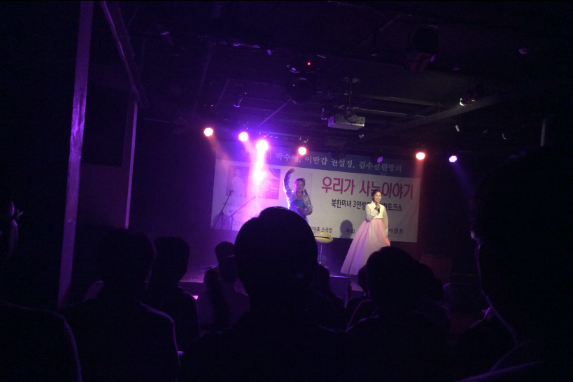Abstract
Approximately thirty thousand former North Koreans now live in South Korea, the majority of this population women. One of these women, Kim, is the mother of two children. Her first child, a daughter, was born in North Korea and came to South Korea with Kim when she was five years old. Kim has been in South Korea for more than ten years now. Having started her own business, she is one of the relatively successful former North Korean women living in South Korea, but she has made many sacrifices to get where she is. When I asked her about the most memorable incidents or events she had experienced since her arrival in South Korea, Kim told me the following story, one of many similar stories that I encountered while conducting ethnographic fieldwork in Seoul during 2014-2016 among former North Korean mothers who have settled in South Korea.
One day, my daughter told me that her school was going on a field trip, with her entire grade visiting an amusement park. She also said that she needed to bring her lunch. I did not know what to make. We didn’t have the Internet at that time. I watched other [South] Korean mothers buying seaweed rolls [a typical lunch item for school field trips in South Korea] from a local restaurant. I bought the same one. They gave it to me wrapped in foil and then put it into a black plastic bag with disposable chopsticks. I simply gave the bag to my daughter as her lunch! Can you imagine how she felt?Kim, a forty-three-year-old mother, chuckled when telling me about this “seaweed roll in a black plastic bag” incident. What this North Korean mother did not know was that a nicely decorated lunch box is a very important part of school field trips in South Korean culture. Many South Korean mothers make seaweed rolls themselves, decorating their children’s lunches with beautifully carved fruits and vegetables, and producing what are, literally, works of art. A field trip lunch is not just food, but more of a testimonial to the amount of time and care a mother devotes to her child – that is to say, no child would take along food bought from a store in a plastic bag as his or her lunch. Many years later, she still feels profoundly embarrassed whenever she thinks about this incident.
The North Korean mothers in South Korea that I met often used the term munhwa ch’ai (cultural difference) when referring to this kind of issue, rationalizing among themselves that things were different in North Korea. However, behind this homogenized and somewhat dismissive term lie multiple layers made up of personal strategies and rationalizations developed by these former North Korean mothers in their effort to adapt and survive in South Korea. It is well known that North Koreans who have settled in South Korea have been, and continue to be, subjected to discrimination and suspicion (Ryang 2012a). But just how do North Korean mothers cope, beyond simply deeming such practices as the product of “cultural difference”? And what lies behind this rather generalizing term? In this article, I would like to disentangle the circumstances that generate “cultural difference” for North Korean mothers living in South Korea, identifying four broad sub-areas related to identity, multiculturalism, sense of self, and relation to freedom. I begin by examining the way in which North Korean defectors are initially introduced to South Korean society via the government-run rehabilitation program, paying particular attention to how the personal histories of North Korean mothers are treated – or disregarded – the moment they reach South Korea. Through this analysis, I hope to create a window into the daily reality faced by these women in South Korean society and the obstacles that they endure in everyday parenting. Concluding the article, I argue that the current system by which South Korea receives, processes and provides assistance to former North Koreans is complicit in creating obstacles for these North Korean mothers.

This work is licensed under a Creative Commons Attribution-NonCommercial-NoDerivatives 4.0 International License.

